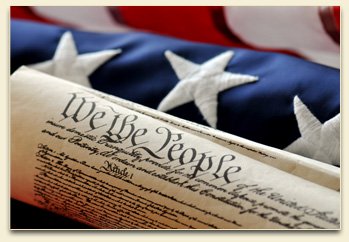Independent and third party candidates still fighting for the right to participate in America's democracy

If a group of people told you that elected officials, influential civic groups, the mainstream media, and independent polling organizations were all engaged in a systematic effort to effectively silence them by ensuring that the wider public was not exposed to their views and opinions, you might conclude that this was nothing but an elaborate conspiracy theory.
Yet, this is the reality faced by third party and independent candidates for elected office all across the United States.
In Pennsylvania earlier this week, Democrats and Republicans filed legal challenges against third party and independent candidates for governor, lieutenant governor, US Senate, and the House of Representatives. If successful, these efforts will result in the exclusion of those candidates from the ballot.
Predictably, Democrats have challenged the ballot access petitions of numerous Green Party candidates, while Republicans are focused on keeping Libertarian Party hopefuls off the November ballot. However, such challenges are less an attack on the candidates themselves than they are a slap in the face of the thousands of Americans who signed the petitions to ensure that those candidates will appear on the ballot.
Almost by definition, petition challengers do not have substantive complaints against the candidates, but rather contest individual signatures on the basis of the most minute technicalities. If only Democrats and Republicans were so attentive to detail when it comes to drafting laws within the boundaries set by the Constitution.
In Arkansas, the Association of Arkansas Counties will be holding a debate for the state’s US Senate candidates this Friday. However, the taxpayer-funded organization has only invited the Democratic and Republican party candidates to participate in the forum and has refused to include Green Party candidate John Gray and Independent candidate Trevor Drown. Supporters of the Green and Independent have now vowed to protest outside the event, according to a press release from the Drown campaign. Drown asks if this represents the American way, stating:
"I served this country in combat and thousands of Arkansans signed the petition to place me on the ballot. Now a tax-payer funded organization, which lobbies for elected county officials in Arkansas schedules a debate and closes it to two candidates: the Republican and the Democrat. Is this the American way?"
Third party and independent candidates are, of course, not only excluded from debates and forums, they are also excluded from mainstream media coverage of the political process as well. Coverage of the Massachusetts gubernatorial race has indeed included reports on the candidacy of Democrat-turned-Independent Tim Cahill, but the state’s major newspapers have thus far all but ignored Green-Rainbow Party candidate Jill Stein.
At the Valley Advocate, a local media outlet from Northampton Massachusetts, Maureen Turner draws attention to this systematic omission with a report entitled “Stein’s in the Race – If Anyone Cares to Notice.” Turner concludes the article noting that Stein has also been excluded from candidate debates and forums:
“voters who want to know what Stein and her party are all about will have to work extra hard to get that information. While the two-party system that dominates political discourse has creakily opened its gate long enough to let in the Democrat-until-a-minute-ago Cahill, it's slammed it tight in Stein's face. That includes her exclusion from candidates' debates, such as the first debate of the season, held earlier this summer at a Boston radio station.”
Simply put, “third party candidates get third-class treatment” in the corporate media, as Pacific Green Party candidate for US Senate in Oregon, Candy Neville, recently argued in a guest column at Oregon Live.
Perhaps a partisan of the Democratic or Republican party might counter that, even though third party and Independent candidates will in fact appear on the ballot, it is nonetheless reasonable to exclude them from media coverage of the race and even from candidate forums and debates on the grounds that they have not demonstrated significant support in the public opinion surveys of independent polling organizations. The logic of this argument reveals itself to be perfectly circular, however.
Adrian Wyllie has called attention to the paradox in the case of Alexander Snitker, Libertarian candidate for US Senate in Florida. Wyllie points out that media organizations justify their dismissal of third party and independent candidates on the basis of the fact that they have no demonstrable support in the polls, but the polling organizations do not include these candidates in their surveys on the basis of the fact that they are not covered in the media.
The apparent nonchalance with which media and pollsters dismiss third party and Independent candidates stands in stark contrast to the seriousness of the Democratic and Republican parties in their efforts to keep them off the ballot. Any candidate who is not beholden to the Democratic and Republican party machines is a threat to the Democratic-Republican monopoly on elected office.
Given that there are already more Independents than there are Democrats and Republicans in over ten states, they are right to be afraid.




